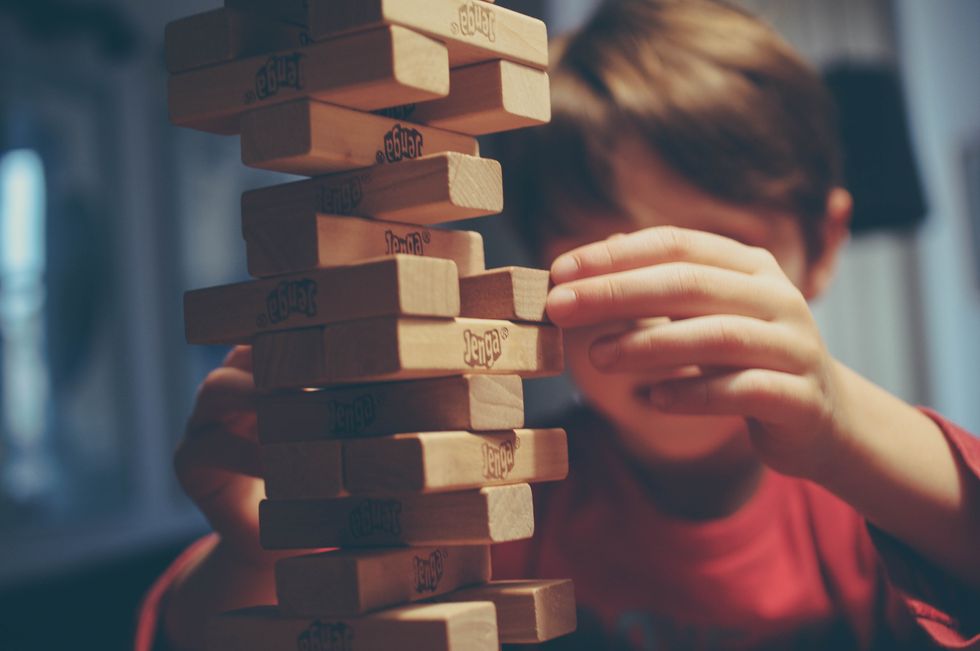If you were fortunate to grow up with someone on the ASD spectrum, you know how drastic your perception of autistic people is to people who haven’t interacted with them as much. Growing up with someone on the Autism Spectrum Disorder opens you up to different perspectives and allows interactions that you wouldn’t have experienced without them. Being so, it also allows you to see how broken and deteriorating the ideology of autism is in our society. There are so many damaging stereotypes surrounding children and adults with autism that are negative and immoral that need to be broken and decomposed today. Hopefully, this article gives you a new perspective on the world of autism.
Autism is a disorder caused by a brain abnormality. According to Dictionary.com, it's “a mental condition, present from early childhood, characterized by difficulty in communicating and forming relationships with other people and in using language and abstract concepts”. Over 3.5 million Americans have been diagnosed with the Autism Spectrum Disorder, also known as the ASD. This number is even higher as it excludes children or adults that haven’t been officially diagnosed. Autism is not rare to see in society. People easily associate autism as a disease, which it’s not, and internally associate it as being sick or infectious. Autism is not infectious, it’s genetically developed, so let’s stop treating it as if it’s a disease. Autism is also something that doesn’t just present itself at birth. It can appear as late as five with just the same symptoms as someone who’s one. Also, unpopular opinion, it’s not something that can be magically caused by a vaccination.
Having an autistic brother, I’ve been so accustomed to the world of ASD and what it entails that it’s easy to brush aside the fact that a large part of society isn’t exposed to what I am on a daily basis. People have this representation of people with ASD from media, which is incredibly unrepresented, and just assume that every with autism shows these same traits and characteristics. I’ve noticed this fairly often when I’m about with my brother. It’s this one perception of autism that always catches society off guard when they encounter a different side of the coin. This gaze of confusion and discomfort that can be read from a mile away.
Now, It’s not unrealistic to feel slight discomfort when you may be around with someone with autism. It’s how you interpret this discourse and act on it that determines if you’re ideologies on autism and whether they’re damaging or not. There is this blanket surrounding people with autism that they are different and not cognitively “normal.” Society is pushing this ideal that we need to be researching this disorder and finding a “cure” for it versus teaching everyone that autism isn’t some disease that everyone should fear or un-normalize.
This is not to say that of course, we want to be able to prevent the abnormalities of autism from developing in fetuses, but we also need to focus on how autism is perceived in society today. The teaching of awareness in autism for young children is non-existent which is why children construct these ideologies on autism. These ideologies that deem that kid with autism in their class is “weird”. Having one autistic character is a kid’s television show, while a big step in representation, is nothing compared to how expansive the autism spectrum disorder is. I could forever list different things we need to instill in younger children that would amount up to a whole other article.
I’m not saying these ideologies that have been created by the media can easily be erased from our unconscious. I’m saying that people need to try harder in hearing the voices of autistic people and need to better normalize their presence in our everyday society. Discomfort or uncertainty can’t just disappear, but dominant discourses can. Autism is not this disease that plays out the same symptoms in every child when they’re growing up. It’s a disorder that needs to be normalized in society today. Autism is not just Max from "Parenthood." It’s not something you can catch, and it’s not something that magically appears. Start dismantling these ideologies you have and create ones that accurately represent the ASD community today.








































